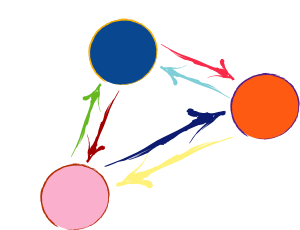Social Learning
These days a popular term has emerged in learning circles – social learning. It’s not an entirely new term. Discussion about social learning has roots going back as early as the late 1800’s. In recent times it has become somewhat synonymous with social media learning. While learning theorists will rightfully disagree that the two terms mean the same thing, common usage has blurred the meanings and the two are now often used interchangeably.
Social learning is currently a hot topic in the corporate world. Many organizations are adopting social learning practices that focus on employees often learning best from peers and internal subject-matter experts. Collaborative and multi-faceted learning is the key to social learning. Mechanisms such as communities of practice, wikis, blogs, discussion groups and expert directories are being used to bring about more efficient and useful learning in the workplace.
Outside of the workplace, social learning takes place in similar ways with a contemporary focus on social media as the primary vehicle to loosely organize and facilitate this type of learning. Again, the focus is on learning from others in an informal manner.
Whether taking place in the workplace or in other aspects of our lives, social learning is a concept that will only grow over time as we network further with each other and in more robust and intricate ways. Technology will continue to facilitate social learning to the point where I believe it will significantly challenge, head-to-head, traditional classroom approaches to learning. A tipping point is approaching at which time social learning will be considered a viable alternative to classroom-based education. I look forward to that day.
However, when talking about social learning, it’s important to remember that social learning is really a subset of the larger topic of self-education. Informal learning, self-directed learning, social learning and social media learning are all so closely related to each other that we must continue to think of them within the context of the broader topic of self-education.
I believe self-education is the future cornerstone of all education. In truth, it always has been, but the dominance of formal education in the community consciousness has been so overwhelming that it’s drowned out any reasonable discussion of self-education until fairly recently. I hope the rise of social learning’s importance will help to usher in a new era of more useful, cost-effective and personally-relevant learning gained primarily through self-education.
